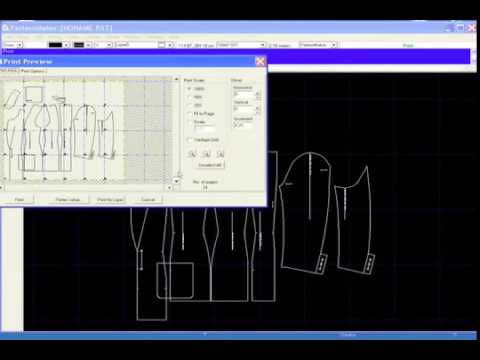High-Paying Data Entry Clerk Job – Earn Top Salary!

Data Entry Clerk Job Description Template
Data Entry Clerk Job Description A data entry clerk is responsible for inputting and updating information into a computer system or database accurately and efficiently. They typically work in administrative roles, where they handle large volumes of data on a daily basis. The primary task of a data entry clerk is to enter data from various sources, such as paper documents, spreadsheets, or digital files, into a computer system using specialized software. They must ensure that the entered data is accurate and free from errors, as this information is critical for the organization’s operations and decision-making processes. In addition to data entry, these clerks may also perform other administrative tasks such as organizing files, maintaining records, and generating reports. They may be required to verify the accuracy of data by comparing it to source documents or performing data audits. Attention to detail is crucial for a data entry clerk, as any inaccuracies or mistakes can have significant consequences for the organization. They must also possess strong organizational skills to manage and prioritize large volumes of data effectively. Proficiency in using computer software and typing speed are also essential requirements for this role. Overall, a data entry clerk plays a vital role in ensuring accurate and up-to-date information is maintained within an organization. Their work contributes to the smooth functioning of various departments and facilitates efficient decision-making processes.Data Entry Clerk Responsibilities
Data Entry Clerk Requirements
How Much Does A Data Entry Clerk Make?
Data Entry Clerk Salary
| Experience Level | Annual Salary |
|---|---|
| Entry Level | $25,000 – $30,000 |
| 1-3 Years | $30,000 – $35,000 |
| 3-5 Years | $35,000 – $40,000 |
| 5+ Years | $40,000 – $50,000 |
A data entry clerk is responsible for inputting and updating various types of data into computer systems. They ensure accuracy and completeness of data, and may also perform basic clerical tasks. The salary of a data entry clerk varies based on their experience level. Entry level clerks can expect to earn an annual salary ranging from $25,000 to $30,000. With 1-3 years of experience, the salary range increases to $30,000 – $35,000. Those with 3-5 years of experience can earn $35,000 – $40,000, while those with 5 or more years of experience can earn $40,000 – $50,000 per year.
Data Entry Clerk Salaries by Country
Top Paying Countries for Data Entry Clerk
| Country | Salary Range |
|---|---|
| United States | $30,000 – $45,000 |
| Australia | $35,000 – $50,000 |
| Switzerland | $40,000 – $55,000 |
| United Kingdom | $28,000 – $40,000 |
| Canada | $28,000 – $42,000 |
Data entry clerks play a crucial role in maintaining accurate and organized databases for businesses. The salary range varies depending on the country, with the United States, Australia, Switzerland, the United Kingdom, and Canada being among the top-paying countries. In the United States, data entry clerks can earn between $30,000 and $45,000 annually. Australia offers a salary range of $35,000 to $50,000, while Switzerland provides a range of $40,000 to $55,000. The United Kingdom and Canada have salary ranges of $28,000 to $40,000 and $28,000 to $42,000, respectively. These salaries reflect the value placed on data accuracy and efficiency in these countries.
A video on the topic Data Entry Clerk
Video Source : FlexJobsInterview Questions for Data Entry Clerk
1. What are the key responsibilities of a Data Entry Clerk?
A Data Entry Clerk is responsible for inputting and maintaining accurate data into computer systems, verifying the accuracy of information, and organizing and sorting data.
2. What software or tools do you have experience with for data entry?
I have experience with various software and tools such as Microsoft Excel, Google Sheets, and data entry software specifically designed for efficient data input.
3. How do you ensure accuracy and attention to detail in your data entry tasks?
To ensure accuracy and attention to detail, I double-check my work before submitting it, use tools like spellcheck and data validation, and closely follow any guidelines or templates provided.
4. Can you handle large volumes of data and work under tight deadlines?
Yes, I am comfortable working with large volumes of data and can manage my time effectively to meet tight deadlines. I prioritize tasks, use shortcuts and automation when applicable, and stay focused to ensure timely completion of projects.
5. How do you handle confidential or sensitive data during the data entry process?
I understand the importance of confidentiality and take necessary precautions to protect sensitive data. This includes securing the data in password-protected files or databases, limiting access to authorized individuals, and following any privacy regulations or company policies in place.
6. Describe a time when you encountered a discrepancy in the data you were entering. How did you handle it?
When I encountered a discrepancy in the data, I immediately stopped the entry process and reviewed the available sources to identify the correct information. If necessary, I reached out to the relevant parties for clarification and resolved the discrepancy before continuing with the data entry.
7. How do you manage your workload when there are multiple data entry tasks to complete?
I prioritize the tasks based on urgency and importance, and create a schedule or to-do list to keep track of my progress. I also communicate with my supervisor or team members to ensure alignment on priorities and seek assistance if needed.
8. Are you familiar with data cleansing and data quality control processes?
Yes, I am familiar with data cleansing and data quality control processes. I understand the importance of maintaining clean and accurate data, and I am proficient in identifying and correcting errors, duplications, and inconsistencies in the data.
9. How do you stay updated on industry trends or changes related to data entry?
I stay updated on industry trends and changes by actively participating in professional development opportunities, attending workshops or webinars, and following relevant blogs or forums. I also make use of online resources and newsletters to stay informed about any advancements or best practices in the field.
10. Do you have any experience in data analysis or reporting?
While my primary expertise lies in data entry, I do have some experience in data analysis and reporting. I am proficient in using analytical tools and can generate basic reports or summaries based on the entered data.






